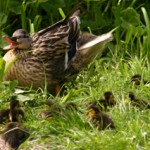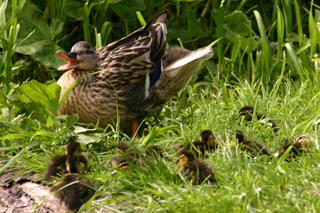 Scottish Natural Heritage (SNH) may make last minute changes to the Scottish general licenses that would take effect from 1st January 2014. A decision will not be announced until as late as a week before Christmas. BASC is challenging this approach following a consultation that was too short, too late and contained poorly developed proposals, one of which may breach the human rights framework.
Scottish Natural Heritage (SNH) may make last minute changes to the Scottish general licenses that would take effect from 1st January 2014. A decision will not be announced until as late as a week before Christmas. BASC is challenging this approach following a consultation that was too short, too late and contained poorly developed proposals, one of which may breach the human rights framework.
In its response to the consultation BASC has recommended that no changes be made until 2015 pending further discussion on the proposals.
BASC response
This consultation has taken place too late in the year. Moreover, the consultation is for a 6 week period – yet the Scottish Government’s code of practice on consultations clearly states that staff should “allow consultees at least 12 weeks to respond, except in very exceptional circumstances”.
The lateness of the consultation means that legal decisions could be taken two weeks before the decision takes effect. In 2012 the Environment Minister and his lead civil servant received a letter from the members of the Shoot Summit, of which BASC is a member. The letter recommended that consultations on changes to general licences take place before the end of June if the intention was to communicate and implement those changes the following January.
BASC Scotland recommends that Scottish Natural Heritage should use this six-week consultation to scope for views that can then be used to allow greater discussion of these proposals. Therefore no decisions should be taken that take effect on 1st January 2014, especially when we have not seen the detailed wording of the enabling paragraph as discussed in section A.
Our comments on sections A-E in the consultation are below.
A. Grant SNH a power to prohibit the use of general licences over a geographic area in some circumstances.
BASC Scotland has serious concerns regarding this proposal.
- The measures proposed are not proportionate. Government is under a duty as part of the Human Rights Framework to ensure proportionality and this form of collective punishment is far from proportional.
- The measures could have serious conservation impacts. The General Licences, particularly No 1 for the conservation of wild birds, are in place for a reason. They are essential for protecting biodiversity and vulnerable species. Should the use of the licences be prohibited on large swathes of ground the Government is potentially exposing wildlife in that area to unnecessary predation. Crops and public safety could also be put at risk in those areas affected and neighbouring areas.
- The potential impact on businesses and livelihoods without being convicted of a criminal offence is simply unacceptable and open to abuse.
Should these proposals be imposed;
- BASC Scotland representing its members will consider challenging any unreasonable restrictions on the use of the General Licence over large areas of land where it sees fit.
- “Certain Circumstances” must be clearly defined and agreed by all stakeholders.
- There must be a high standard of proof.
- As with vicarious liability there must be mitigation measures to allow those affected to protect themselves from abuse along with an appeals procedure.
B. Remove some documentary evidence for sale of captive bred birds.
No comment
C. Withdraw the general licence that allows people to take mallard eggs from the wild to incubate them.
General Licence 11 should remain as it is. It is a useful conservation tool, especially where a nest is in a potentially risky area. We see no conservation downside to the retention of this licence.
D. Extend time limit for registration of captive bred birds.
We support this.
E. Withdraw two general licences that allow the sale of dead birds.
General Licences 13 and 14 should remain as they are while removing the reporting requirement.
General Points
The wording of the general licences still remains inaccessible to many. The information contained within them should be further disseminated and the provisions made clear and obvious. We would also like to see SNH doing more to publicise these licences as our experience through speaking to the general public at game fairs is that very few people are aware that the licences exist and are even less aware that they are reviewed and changed annually.
We would like to take the opportunity to clarify common practices such as the use of electronically generated calls, such as crow calls, that are used in pest control when the Wildlife and Countryside Act prohibits the use of “recordings”. We would suggest that the relevant general licences contained an allowance in section 6 specifically permitting the use of electronically generated calls.
Any changes that are ultimately made with respect to trap use and design must allow sufficient time for these changes to be accommodated.
